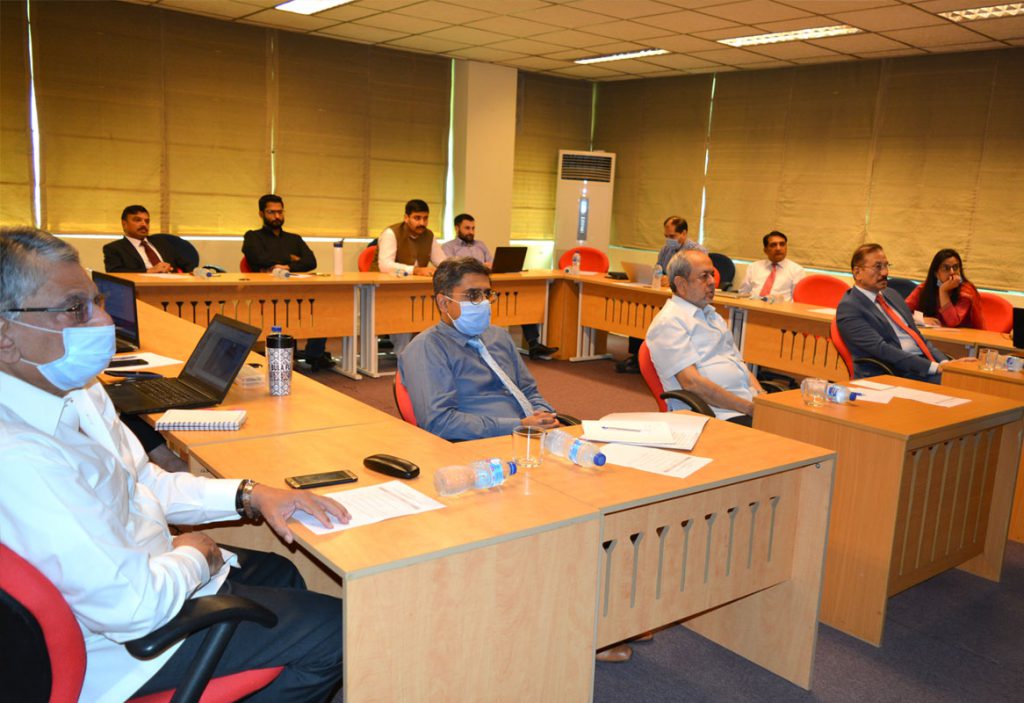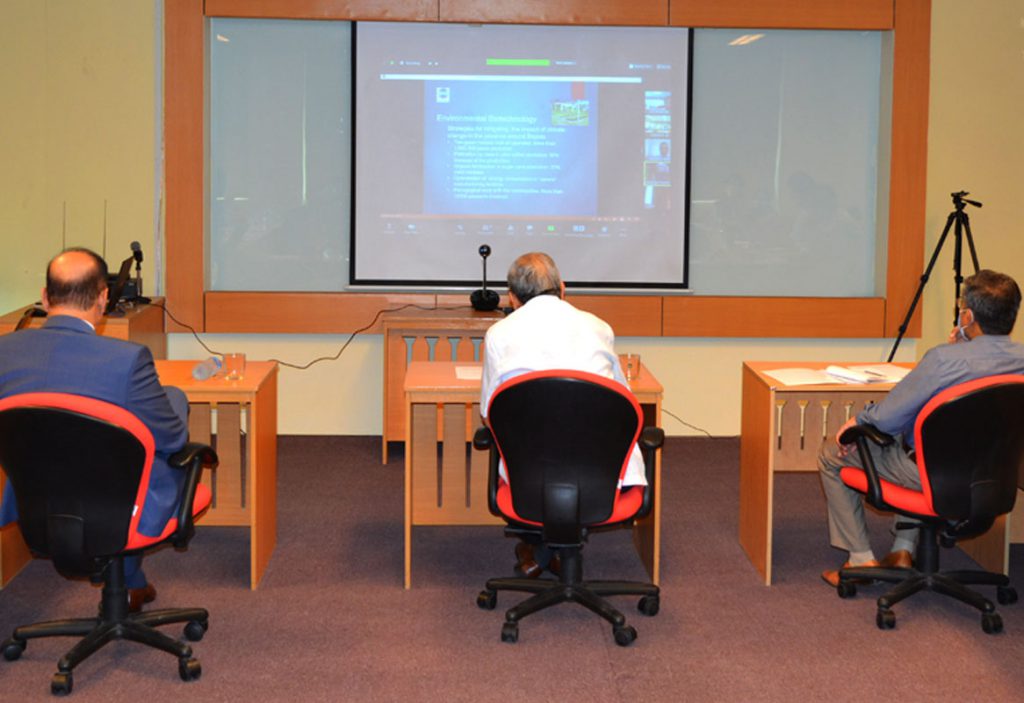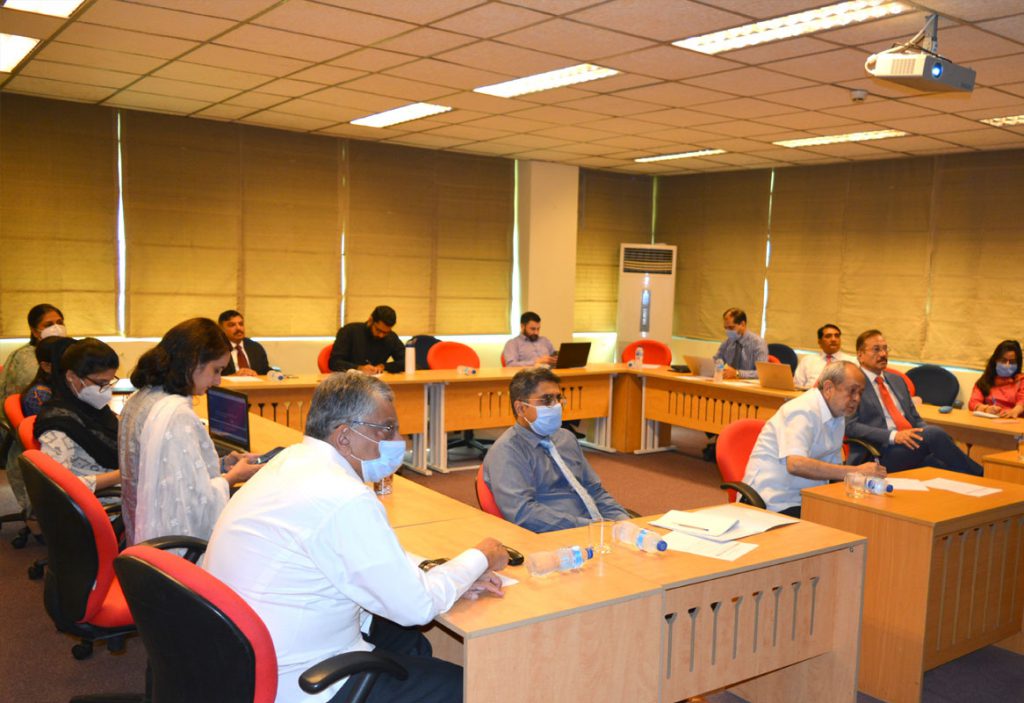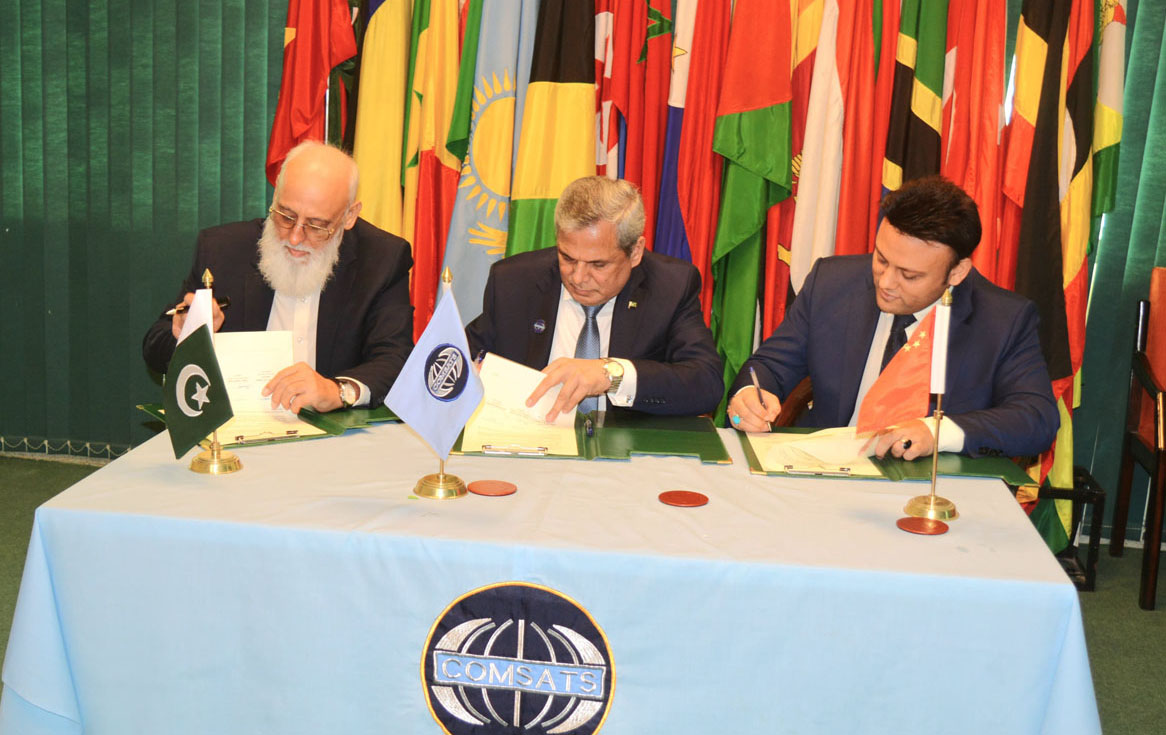The third virtual presentation session in connection with COMSATS Coordinating Council Meeting was held on September 22, 2020, with participation from 12 Centres of Excellence, including International Centre for Climate and Enviro nment Sciences (ICCES), China; Tianjin Institute of Industrial Biotechnology (TIB), China; Centro Internacional de Física (CIF), Colombia; National Research Centre (NRC), Egypt; University of The Gambia (UTG), The Gambia; Sepuluh Nopember Institute of Technology (ITS), Indonesia; Royal Scientific Society (RSS), Jordan; Al-Farabi Kazakh National University (KazNU), Kazakhstan; National Mathematical Centre (NMC), Nigeria; COMSATS University Islamabad (CUI), Pakistan; Tanzania Industrial Research and Development Organization (TIRDO), Tanzania; and the Scientific and Technological Research Council of Turkey (TUBITAK), Turkey. The meeting also had the participation of 20 officials of COMSATS Secretariat.
nment Sciences (ICCES), China; Tianjin Institute of Industrial Biotechnology (TIB), China; Centro Internacional de Física (CIF), Colombia; National Research Centre (NRC), Egypt; University of The Gambia (UTG), The Gambia; Sepuluh Nopember Institute of Technology (ITS), Indonesia; Royal Scientific Society (RSS), Jordan; Al-Farabi Kazakh National University (KazNU), Kazakhstan; National Mathematical Centre (NMC), Nigeria; COMSATS University Islamabad (CUI), Pakistan; Tanzania Industrial Research and Development Organization (TIRDO), Tanzania; and the Scientific and Technological Research Council of Turkey (TUBITAK), Turkey. The meeting also had the participation of 20 officials of COMSATS Secretariat.
During the present session, COMSATS Centre from Colombia (CIF) presented its activity report covering the period since the last Coordinating Council Meeting. NRC, however, could not make its presentation due to some technical issues.
Prof. Eduardo Posada, Director of CIF, while delivering the presentation acquainted the participants with his Centre’s key areas of work that include both basic and applied research. He informed that CIF is providing sustainable solutions to Colombia’s industrial sector through development of various technologies. He noted installation of “intelligent photo controllers” in Cundinamarca Department of Colombia as CIF’s landmark achievement that has benefitted many towns of the Department through rational use of energy. Dr. Posada also informed the participants about measures adopted for mitigating the impact of climate change in the Department, including greenhouse institution, tree plantation, optimization of energy consumption, as well as awareness campaigns for local communities.
Sharing the future initiatives of his Centre to make its practices more sustainable, Dr. Posa da informed that CIF plans to construct an eco-park in Casanare Department of Colombia; develop technologies for tropical fruit processing and preservation; and digitize the power consumption of National University of Bogotá, among others.
da informed that CIF plans to construct an eco-park in Casanare Department of Colombia; develop technologies for tropical fruit processing and preservation; and digitize the power consumption of National University of Bogotá, among others.
Dr. Posada informed that the Centre is working on the scaling-up of CIF’s research projects on sugar cane production. A pilot project has been developed and relevant consultations are being made with the Government of Colombia and other stakeholders in the country.
During the discussions, Mr. Farhan Ansari, Sr. Assistant Director (Programmes) and Liaison Officer for COMSATS Centres of Excellence, proposed that short-term training courses offered by CIF in its areas of expertise may be conducted virtually in collaboration with COMSATS, to which Dr. Posada assented. In the similar vein, other Centres were encouraged by Prof. Shaalan to collaborate with COMSATS for conducting virtual training programmes in the areas of their expertise.
Appreciating CIF’s undertakings during the reporting period, Dr. S. M. Junaid Zaidi, Executive Director COMSATS, suggested replicating CIF in other Member States of COMSATS. Being receptive of this idea, Dr. Posada assured his full support while also consenting to share a concept note for this mega-project.
Replying to Prof. Orkun Hasekioğlu, Executive Vice President of TUBITAK, Mr. Ansari appr eciated the active participation of the Centres of Excellence in ANSO’s call for joint research projects. He informed that the projects would be shared with the Centres after technical review by the international experts.
eciated the active participation of the Centres of Excellence in ANSO’s call for joint research projects. He informed that the projects would be shared with the Centres after technical review by the international experts.
Further during the session, information on the ‘Belt and Road Training Course on Leadership and Sustainable Development’ offered by the University of Chinese Academy of Sciences (UCAS), China, to the Centres of Excellence and COMSATS’ member states was also shared with the participants.
Closing the session, Prof. Shaalan thanked all the participants and hoped to continue the sessions the following weeks. Dr. Zaidi looked forward to fruitful outcomes of these deliberations.





